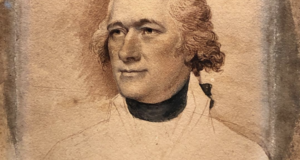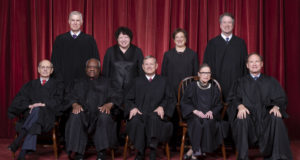There is a lively debate afoot in legal circles, both in the United States and now in Canada, on the “common good.” It began with Adrian Vermeule’s call for a “common good constitutionalism,” in which vague provisions would be infused with values drawn from the Catholic natural law tradition. Many others have now adopted the “common good” moniker, though it ...
Read More »Featured
The Common Good in Legal Interpretation: A Response to Leonid Sirota and Mark Mancini
A renaissance of interest and juristic thinking about the moral foundations of the law and legal reasoning is underway, and its reverberations have now reached Canadian shores. On February 22, Leonid Sirota and Mark Mancini published a post on the Double Aspect Blog entitled “Interpretation and the Value of Law”.[1] Although the post itself merely claims to show “[w]hy the ...
Read More »Moving to Strike
I recently went on the Runnymede Radio podcast to discuss how the law on motions to strike pleadings to determine novel questions of law may be changing after decisions from the Supreme Court of Canada earlier this year in Nevsun Resources Ltd v Araya (“Nevsun”) and Atlantic Lottery Corp Inc v Babstock (“Atlantic Lottery”). In this blog post, I briefly ...
Read More »On Responsible Scholarship: A Reply to Stepan Wood, Meinhard Doelle, and Dayna Scott September 8, 2020
Accusations of irresponsible scholarship are a serious matter, and they have an even graver dimension when they give the appearance of being framed and timed so as to attempt to interfere with academic contributions to a major public debate. In this post, I address a recent paper by Stepan Wood, Meinhard Doelle, and Dayna Scott attempting to challenge my well-known ...
Read More »Destabilizing the Doctrine: A Critique of Uber v. Heller
Under Uber's standard form contract, all disputes were subject to mandatory mediation and arbitration in the Netherlands with an upfront fee of US $14,500, representing most of a driver's annual salary.
Read More »A Textualist Critique of Bostock
The Supreme Court of the United States’s recent decision in Bostock v. Clayton Country, Georgia has already elicited a great deal of controversy and scholarly commentary. I typically refrain from commenting on U.S. decisions as I am not an expert on U.S. law. However, the decision in Bostock turned entirely on the application of the principles of statutory interpretation, which has long been an interest of ...
Read More »Deconstructing Quebec’s “Shocking” Bill 61
The Quebec legislature has been considering Bill 61 to “restart” the province’s economy in the wake of its initial easing of lockdown measures. The government of Quebec imposed the lockdown on March 13 under the emergency provisions of the Public Health Act. Bill 61 essentially circumvents these provisions of the Public Health Act. This Act would not be formally amended, but the more specific and recent provisions of Bill 61 would override its ...
Read More »A New Canadian Textualism Emerges from the Stratasphere
In Entertainment Software Assoc v Society of Composers, 2020 FCA 100, Stratas JA (for the Court) made a number of interesting comments about statutory interpretation in the administrative state and the role of international law in the interpretive activity. In this post, I review these comments, and agree with them wholeheartedly. This case is an important add-on to a growing list of ...
Read More »The Phenomenon of Deferred Reasons: A Tale of Two SCC Decisions
Earlier this month, Justice Côté released her dissenting reasons in International Air Transport Association, et al v Instrubel, NV, et al (“International Air”). The decision was historic (as far as I am aware), coming months after the Supreme Court dismissed the decision orally in December, “substantially” through adopting the reasons of the Quebec Court of Appeal. In this post, I ...
Read More »Food for Thought on Stare Decisis: SCOTUS’s Decision in Ramos v Louisiana
Last week’s decision of the Supreme Court of the United States in Ramos v Louisiana (“Ramos”) made headlines for ruling that the guarantee of trial by jury in the Sixth Amendment to the United States Constitution guaranteed the right to unanimous jury verdicts, even at the state level. The ruling invalidated Louisiana and Oregon laws that permitted convictions to be ...
Read More » Advocates for the Rule of Law
Advocates for the Rule of Law









